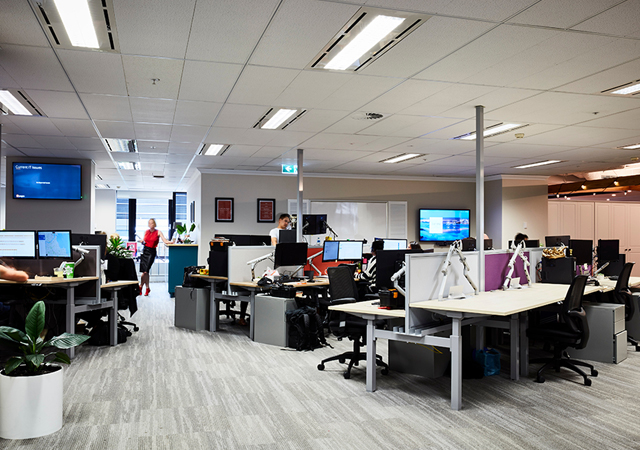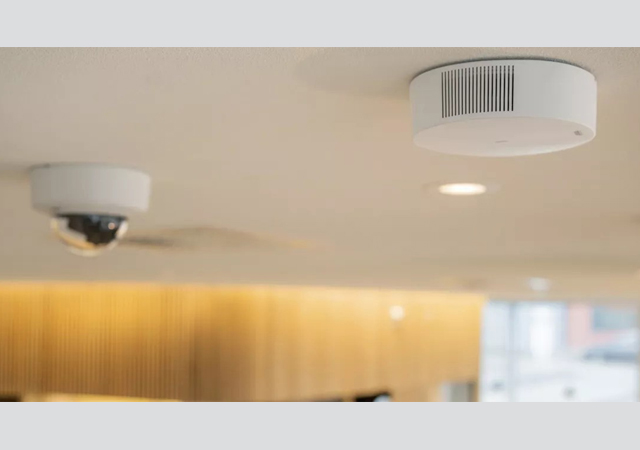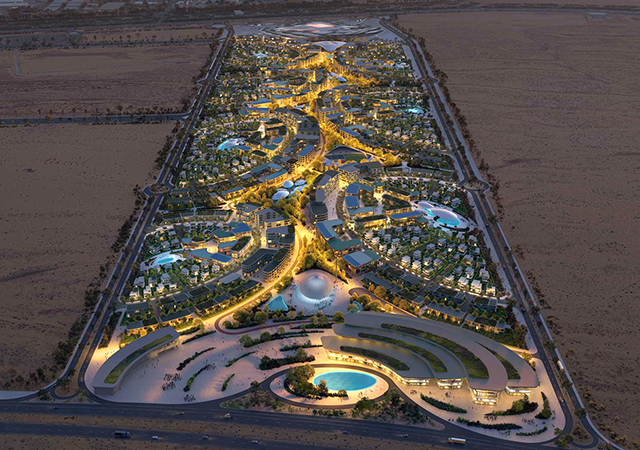
 Key supplier ... about 205,000 tonnes of aluminium produced by Dubal.
Key supplier ... about 205,000 tonnes of aluminium produced by Dubal.
Dubai Aluminium Company Limited (Dubal) – one of the world’s biggest single-site aluminium smelters and the seventh largest producer of the metal – can justifiably claim to be a key player in the region’s construction sector: approximately 205,000 tonnes of aluminium produced by the global aluminium major in extrusion billet form is absorbed each year by the construction sector in the GCC, Middle East, North Africa and Iran.
Some 90 per cent of this aluminium is destined for architectural applications ranging from major residential developments, through hospitality industry projects to recreational initiatives in the dramatic construction boom in the region – particularly in Dubai. It is finding its way into curtain-walls, cladding, window and door frames, kitchen cabinets, louvres/sun breakers, as well as air-conditioning system ducts and grilles.
“Landmark buildings such as the $8 billion Burj Dubai, currently under construction and destined to be the tallest tower in the world on its completion in 2008, will incorporate an estimated 1,400 tonnes of aluminium products manufactured using our extrusion billets,” says Walid Al Attar, general manager of marketing and sales at Dubal. “Other major construction projects in the region – such as Dubailand, Business Bay, the Dubai Waterfront, the Palm developments at Jumeirah and Jebel Ali, Dubai World Central and Dubai Sports City – are contributing to growth in overall demand for aluminium products in the Middle East, which is expected to rise 19 per cent to reach 245,000 tonnes per annum by 2008, compared to the 205,000 tonnes used in 2006.”
This growth has resulted in parallel expansion in the size of the region’s metals extrusion industry as a whole. According to Gulf Extrusions Company, Dubal’s single largest customer in the region, the number of extrusion presses in the Middle East has grown from just seven in 1980, to 60 in 2006. A total of 85 extrusion presses are expected to be operational in the greater Middle East and North Africa region by the end of this year.
Gulf Extrusions Company's general manager Modar Al Mekdad says that almost 70 per cent of his company's 30,000 tonnes output is used in the local market to support building and construction projects. Catering for the anticipated continued growth in demand, the company has embarked on a capacity expansion programme aimed at increasing annual output at its Jebel Ali plant to 55,000 tonnes during this year.
Al Attar advises that the volume of extrusion billet produced for the local and regional markets accounts for some 33 per cent of Dubal’s total annual extrusion billet volumes; and 21 per cent of the company's current production of 972,000 tonnes of finished aluminium product volumes a year.
Diverse value-added aluminium products are manufactured in three main lines:
• Foundry alloy for automotive applications;
• Extrusion billet for construction, castings and industrial application purposes; and
• High-purity aluminium (99.97 per cent) for the electronics and aerospace industries.
“In total, Dubal manufactures 112 individual product lines on average, of which more than 70 are made to customer specifications,” says Al Attar. 'The company is widely acclaimed as the world’s top producer of both automotive foundry (alloy A356.2) and high-purity ingot; and is among the world’s leaders in the production of extrusion billet. Ongoing investments in the development of new technologies repeatedly yield in-house innovations in the reduction technology at the heart of the aluminium smelting process, resulting in greater output at improved efficiency levels.”
Sold and distributed in global markets, Dubal's extrusion billet ingots are primarily cast in alloy 6063, which derives superior quality from its intrinsic purity, Dubal’s ‘airslip’ hot-top casing process and continuous homogenisation process.
Already, extrusion billets produced by Dubal have featured extensively in several famous landmark structures across the world, including The Opera House in Singapore; Malaysia's Petronas Towers; and Dubai's Burj Al Arab and Grand Hyatt hotels.
Hence, Dubal is justifiably considered a giant in the global aluminium industry. Founded in 1979, Dubal has taken less than 30 years to grow from an initial three-potline operation into a mammoth, state-of-the-art smelter complex comprising eight potlines (presently comprising 1,480 active cells in total), a 1,983 MW power station, a large carbon plant, three casthouses, a 30-million-gallon-per-day water desalination plant, laboratories and research facilities, port and storage facilities, maintenance areas and associated administration buildings.






.jpg)









.jpg)




































.jpg)







